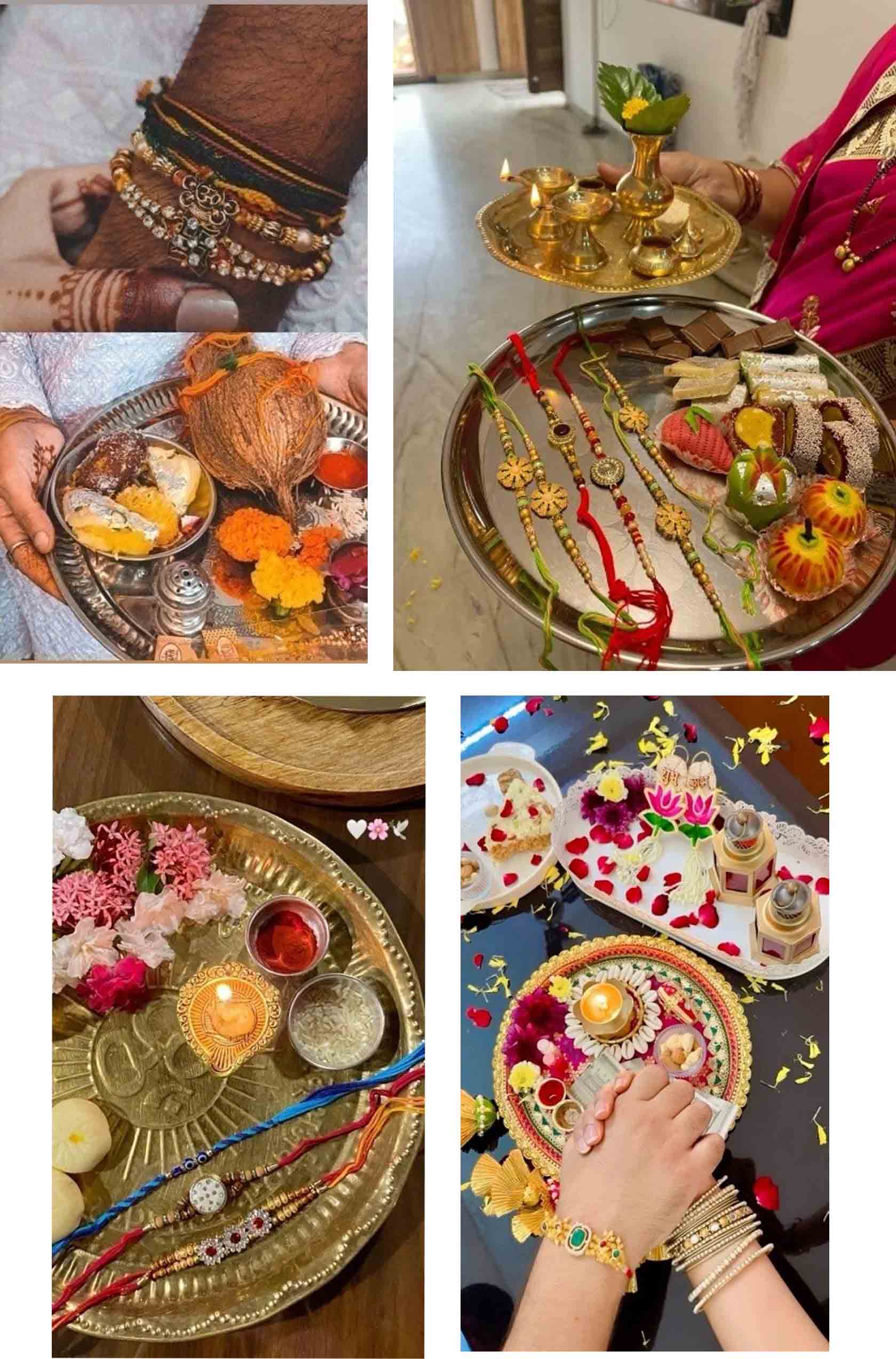
Let’s be honest — if there’s one Indian festivalwhere siblings pretend to like each other for a whole day (and secretly love it), it’s Raksha Bandhan.
But hold on — it’s more than just tying a fancy thread and blackmailing your brother for cash. It’s a festival with heart, history, and a universal message: "I'll protect you, you annoy me, but I love you anyway."
Wait, Why Are We Tying Threads Again?
The word Raksha Bandhan literally means "the bond of protection." In simple terms, the sister ties a rakhi on her brother’s wrist and says, “Now you’re stuck with me, forever.”
Legend says that Draupadi tied a strip of her saree on Krishna’s bleeding finger, and in return, he became her 24/7 protector. No WhatsApp, no GPS, just pure commitment.
And get this — a Muslim emperor, Humayun, once received a rakhi from a Hindu queen. He honored it like a true gentleman and came to protect her. So yeah, Rakhi has always been more about the heart than the religion.
What Actually Happens?
Sister: Ties a rakhi and gets ready to emotionally manipulate for gifts.
Brother: Smiles awkwardly, gives a gift (or a broken promise), and prepares to be roasted on Instagram.
Mom: Brings sweets no one can stop eating.
Whole Family: Takes 78 blurry photos and calls it a day.
But here’s the beautiful part — you don’t need to be Hindu, or even Indian, to celebrate it. The idea is simple: if you care about someone, let them know. Promise to protect, respect, and tolerate their weirdness — that’s Raksha Bandhan in a nutshell.
A Christian Connection?
Yes! The Bible says in Galatians 6:2, “Carry each other’s burdens, and in this way you will fulfill the law of Christ.” Sounds a lot like Raksha Bandhan, doesn’t it?
It’s about love in action, family in feeling (not just DNA), and showing up for each other — just like Jesus showed up for us.
So, Should You Celebrate It?
If you have a sibling, cousin, best friend, or that one person who borrowed your charger and never returned it — yes, 100% yes. Tie a rakhi. Say something sweet. Eat laddoos. Celebrate connection, not just culture.
Final Thought:
Rakhis may break, but sibling blackmail lasts forever.
